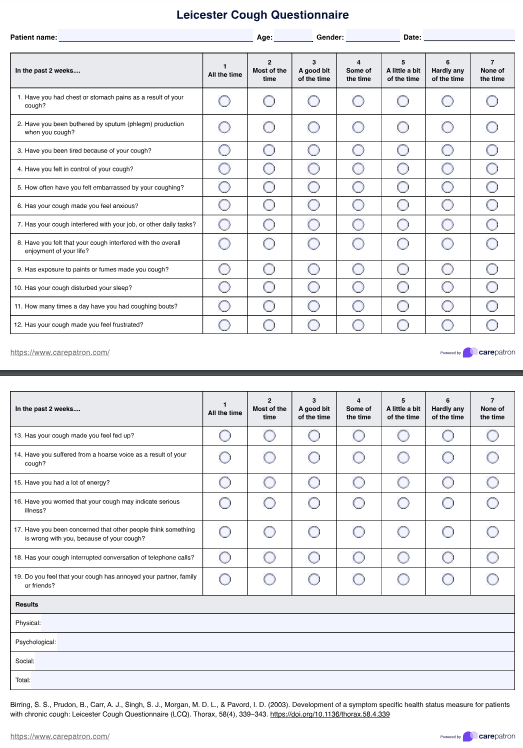The Leicester Cough Questionnaire (LCQ) is a validated tool designed to assess the impact of chronic cough on patients' quality of life. It evaluates physical, psychological, and social domains through 19 items.

Leicester Cough Questionnaire
Download Carepatron's free Leicester Cough Questionnaire PDF example here and assess the impact of cough on an individual's quality of life.
Use Template
Leicester Cough Questionnaire Template
Commonly asked questions
The severity score for the LCQ is derived from the total score, which ranges from 3 to 21. Higher scores indicate a less severe impact of the cough on the patient’s quality of life.
To score the LCQ, patients rate each of the 19 items on a 7-point Likert scale. Scores for each domain (physical, psychological, social) are averaged, and then summed to create the total score.
EHR and practice management software
Get started for free
*No credit card required
Free
$0/usd
Unlimited clients
Telehealth
1GB of storage
Client portal text
Automated billing and online payments











